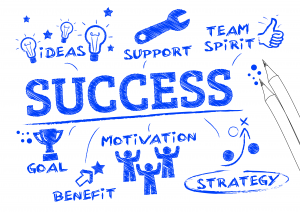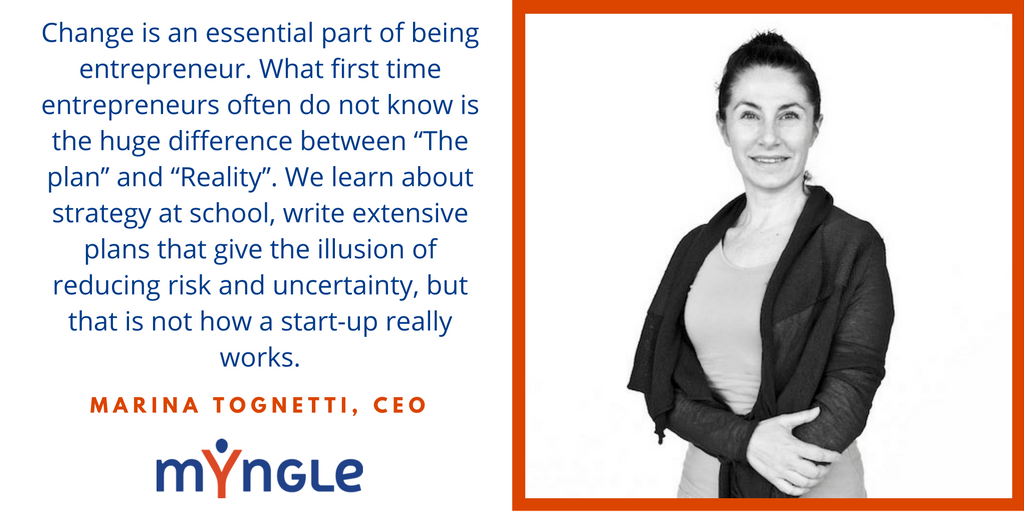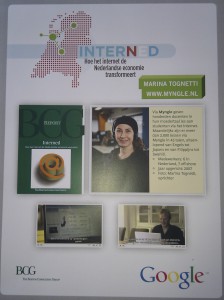 Where do you see yourself in five years? This is a common interview question, but a manager plays a huge role in an employee achieving the success that a candidate envisions. (After all, no one says, “In five years, I see myself doing this same job.”)
Where do you see yourself in five years? This is a common interview question, but a manager plays a huge role in an employee achieving the success that a candidate envisions. (After all, no one says, “In five years, I see myself doing this same job.”)
If you’re a manager, how can you train your employees for success? It’s not just for their good, but for the good of your business. You want employees that can learn and grow and here’s how you can help them to do it.
Help clarify goals.
Some new hires—especially entry level ones—come in with boundless energy and a lack of understanding about how the professional world work. They have the idea that it’s junior analyst today, CEO tomorrow.
On the other hand, you have another group of employees who have no idea where they want to go from here. Perhaps this isn’t their dream job, or even if it is, they don’t have a practical idea of where to go from here. Just how does one get from point A to point B?
As a manager, you want to help both groups of employees with their goals—and help mold those goals around the company’s success. In order to do this effectively, you’ll need to be open and honest with your employees and not punish anyone for saying their real goals lie outside the company. You still want to help an employee achieve that goal. Why? Because while they are working for you, they’ll be engaged and happy. An engaged and happy employee who works for you for two years is far better than an unhappy and disengaged employee who stays with you forever.
Once you have goals, you have to put a plan in place, or goals are simply dreams. There are two different sets of goals you should be concerned with. The first is business and job specific, and the second applies to the long term.
Immediate goals
Most managers are great at business and job specific goals. We send employees to technical training to learn the new systems. We sit next to employees and help them put together presentations. We help prep employees for important client meetings. We see the critical nature of these things because the impact is immediate.
However, when we train for success, sometimes we can’t focus too much on the short term. For instance, let’s say you have a great salesperson who has been with you for several years. She’s a great performer. Then you hire someone fresh out of school or training. Naturally, your new hire isn’t as great as your seasoned salesperson.
The temptation is to always give the good leads to the experienced sales person and to provide extra support for that person—because she’s bringing in the business. However, this short term success will hamper your future success. Why? Because one day your seasoned employee is going to move on, and your new person will not be prepared. Even if your expert salesperson stays and continues to perform at a high level, you’re losing out on the potential of your new hire. Your business will be better off with two fabulous employees than it will be with one fabulous employee and one mediocre one.
It’s true that when your employee is new, giving her a chance may cause short term loss for your business, but if you’re training for success, allowing room for failure is critical. If we only let people try when they are perfect, you’ll be twiddling your thumbs waiting for something that doesn’t exist.
Long Term Goals
These are a bit harder for most managers, because you need your employee to focus on the current job. You need a junior analyst right now and you’ll need a junior analyst tomorrow and next year, you’ll still need a junior analyst. So, if you train your junior analyst to the point that she can be a senior analyst, then she won’t want to continue doing junior work. If your senior analyst quits, you have someone prepared for the job, but if not, your junior analyst is going to move to a new company to achieve her goals. Which means that you’re stuck hiring someone. Why would you want to train someone out of her current job?
Why indeed? Because no one wants to stay a junior analyst forever. Your employee will go looking for new things even if you don’t support her. If you do support her, you increase the probability of her staying with your company and benefiting your company for years to come. You want that.
So, how to train? Listen to what your employee’s long term goals are and explain what the company’s long term goals are. If you have a new HR analyst, but you know that you’ll probably need an employee relations specialist down the road, you can work with her to train for that potential role. Hopefully, her goals and your company goals mesh together well. If not, see if you can find a way to make her goals work with the company. Even if that’s not possible, you’ll find better success with a happy and fulfilled employee.
Some long term goals aren’t handled well in house. For instance, your employee may want an advanced degree. Supporting an employee though that can make a world of difference to your company. It may require offering an 80 percent schedule, or using flexible time so that she can leave early every Tuesday for classes. These are little things that can add long-term value to your company.
Looking Towards Your Own Success
There is a selfish aspect to training great employees: you look great. If you can be seen as the person that brings in great talent and prepares them to take on the world, that’s a gold star on your employee record. You bring extra value to the company when you help train your employees. When you support an employee, she is more likely to do well at her current job, respect you as a boss, and bring value to the company. That’s a winning move for any manager.
The post was written by Suzanne Lucas from The Evil HR Lady



 Many companies have embraced a culture of working from home because their employees can be as productive if not more than when they are in the office. Well-known names like WordPress, Github, Basecamp and Buffer are a part of a growing list of companies that let their staff work from anywhere.
Many companies have embraced a culture of working from home because their employees can be as productive if not more than when they are in the office. Well-known names like WordPress, Github, Basecamp and Buffer are a part of a growing list of companies that let their staff work from anywhere. Employees like perks. The extra benefits that moti
Employees like perks. The extra benefits that moti Where do you see yourself in five years? This is a common interview question, but a manager plays a huge role in an employee achieving the success that a candidate envisions. (After all, no one says, “In five years, I see myself doing this same job.”)
Where do you see yourself in five years? This is a common interview question, but a manager plays a huge role in an employee achieving the success that a candidate envisions. (After all, no one says, “In five years, I see myself doing this same job.”)

 For the first time (looking for more to come), Myngle has presented in the
For the first time (looking for more to come), Myngle has presented in the 
